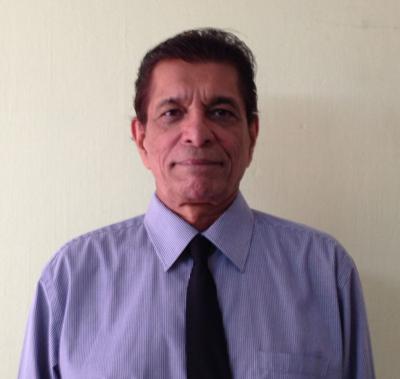Among his first acts as Prime Minister, Stuart Young made changes in the Finance and National Security ministries—two areas of disastrous failures over the last ten years and main causes of current national concern.
By removing Colm Imbert and Fitzgerald Hinds from these pre-eminent portfolios, the new PM seeks to achieve several things: to establish his authority early; distance himself from those failures of the current administration; and telegraph that should his party win again, his top priorities would be our enormous economic challenges and the threats to our safety and security. A strong message to the electorate. Will they buy it?
Changes should have long come to these two ministries. Colm Imbert repeatedly proved incapable as finance minister. It’s been “a decade of decline”, says leading economist Vaalmikki Arjoon, “evident in fiscal under-performance, heightened debt, rising poverty and inequality, diminished investor confidence, and deepening economic uncertainty”. Real GDP has fallen by 17.6% since 2015 from $187.5 billion to an estimated $154.5 billion in 2024.
The inadequacy was revealed very early. In September 2015, Imbert met a 40% drop in national earnings of $20 billion, from $57 billion to $37 billion from changes in the global energy sector, the nation’s main revenue earner.
Notwithstanding 25 years in Parliament, he failed to discern the reasons—structural changes taking place in the international energy industry from the shale revolution, renewable energy and gluts from AI-facilitated major oil and gas discoveries by multinationals.
Imbert waited naively for the normal cyclical return of boom times. In December 2015, three months into the job, he told this endangered country: “We are not in any situation where there is any great cause for concern”, citing our 12 months’ import cover from US$11 billion in reserves.
One year later, 2016, the country’s energy earnings dropped massively from $19 billion to under $2 billion! Diversification for new foreign earnings was more critical than at any time in the nation’s history. Yet complacency reigned. I have said there has never been a thriving, successful economy—large, medium or small—that has not employed economic diversification to achieve success. Ask Barbados, Costa Rica, Mauritius or Singapore. Consult giants America, China, Germany, Japan, India. But Imbert did nothing.
Today, after ten wasted years, there is not a single new foreign revenue stream even gestating. Shame! And yet for those ten years, Imbert presented nine deficit budgets, the one exception being high energy prices from Vladimir Putin’s invasion of Ukraine.
This country was just not earning enough. But to finance the shortfalls, “Deficit” Imbert adopted the scandalously irresponsible approach of borrowing, not for investment in revenue-earning capacity, but “to maintain our lifestyle”! He increased the nation’s debt burden to $143 billion—$66.5 billion higher than 2015!
Today, at US$5 billion, our foreign debt is 147% higher than 2015. General government debt now exceeds 72% of GDP, says the Central Bank.
Worse, our foreign debt must be repaid with US dollars which we no longer adequately earn. Indeed, a foreign exchange crisis is now crippling small and medium enterprises, increasing unemployment and threatening food shortages. But hear “Mr Deficit”: “Fiscal risks are mitigated by significant buffers including the Heritage and Stabilisation Fund and cash reserves.” So laughable but so tragic. Folks, our foreign reserves are now the lowest in 17 years, from US$11 billion in 2015 to US$5.5 billion, the same as our foreign debt, which makes our net reserves zero, says one leading economist. Reserves are mainly from foreign borrowings and withdrawals from the HSF.
This economy is on life support. Boosted not by earned revenue, but foreign borrowing, like the US$7 billion last year “to prop up” reserves. Worse, when we must replenish reserves with HSF funds, we are using savings to finance imports. We spend almost US$1 billion annually in imports. We will spend more now with Donald Trump’s tariff wars. How long will the HSF last before we are completely bankrupt?
See where Imbert has landed us? Converting foreign loans to local currency to finance his deficits, but not earning the US dollars to repay the loans because he failed to diversify into new foreign revenue streams. And Imbert knew the massive hole being dug for the nation. Last year, resorting to more taxation income through the Revenue Authority, he confessed, “The Government cannot continue to sustain budget deficits by increasing government borrowing and debt much longer.” After he had squandered ten precious years!
Crowning the aridity and absurdity, Imbert recently chirped that Moody’s “recognises the Government’s fiscal revenue diversification efforts, as evidenced by the operationalisation of the Trinidad and Tobago Revenue Authority (TTRA) in 2025”. So pathetic! Are increased taxation and improved collection economic diversification? “This man running on empty,” I said.
In 2016, I assessed that our economic situation demanded “courage, creativity and commitment”. In 2018, the inadequacy persisting, I called on former prime minister Dr Keith Rowley to fire Colm Imbert. Then in 2021, I wrote, “this minister should resign before he completely crashes this economy. Just go!”
He’s gone, at last. And Fitzgerald Hinds, too! No more empty loquacity. Thank God. Good moves, PM Young.
—Ralph Maraj




